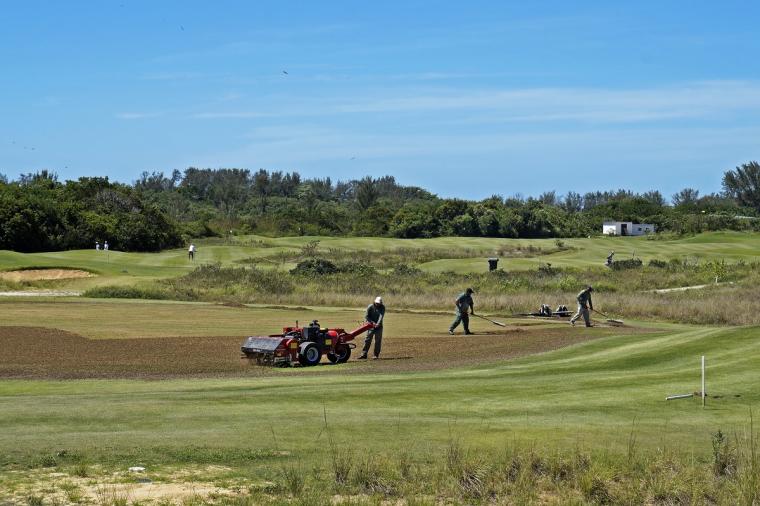
Photo © Wagner Campelo | Dreamstime.com
A number of businesses in the sports and hospitality industry got some welcome news recently: the government will make an additional 64,716 H-2B temporary nonagricultural worker visas available for fiscal year 2023.
H-2B visas allow U.S. companies to temporarily hire nonimmigrants to perform nonagricultural labor or services; in other words, they are workers who are coming to the U.S. to perform a seasonal job, and who expect to return home once the season is over. (A full explanation can be found here).
According to Hotel Management, what makes that number even better is that it is over and above the 66,000 H-2B visas that are normally available each fiscal year. (And that announcement comes less than a year since the two departments made an additional 20,000 H-2B visas available for FY 2022).
For those who object to the concept of bringing laborers in from outside the U.S., employers have a message: The concept of protecting American jobs is unfortunately meaningless when it comes to the types of jobs filled by H-2B workers. Venue operators say that much manual labor is involved for many of the jobs in question, and that U.S. residents – including high school and college students – don’t want to perform those tasks.
Among the sports venues that rely heavily on H-2B to fill vacancies are golf courses and equestrian facilities, including rodeo grounds, racetracks and riding centers – although many other facilities use these workers as well, as does the hospitality industry as a whole – who are in need of housekeeping staff and banquet servers, for example.
In order to use H-2B, employers must establish that there are not enough U.S. workers who are able, willing and qualified to do the temporary work and that wages will not be adversely affected by hiring a foreign worker. They also have to prove that hiring an H-2B worker will not take a job away from an American worker.
So far, that hasn’t been an issue for the American businesses that rely on these workers. Horse racing officials, for example, told the Courier-Journal in Louisville that it’s difficult, if not impossible, to find U.S. workers who want to perform the difficult and dirty work of caring for horses. Mucking out stalls and removing manure are not attractive tasks – and many younger Americans consider such work beneath them, particularly after or during the time they are receiving an education.

“People show up on Day One and they never come back. They don’t want to shovel horse manure. They don’t want to do the hard, heavy labor. ... Maybe they last a week, at most,” L.J. D’Arrigo , an immigration attorney who represents trainer Todd Pletcher, told a reporter.
Jobs in areas such as cooking and serving concessions at sports parks, working in boardwalk kiosks and staffing games and rides at amusement parks and carnivals, as well as doing upkeep on landscaping, are similarly unappealing to young people.
An article in human resources site SHRM noted that the H-2B visa increase includes an allocation of 20,000 visas to workers from El Salvador, Guatemala, Haiti and Honduras to expand legal pathways as an alternative to illegal migration. The remaining 44,716 extra visas will be available to returning workers who received an H-2B visa, or were otherwise granted H-2B status, during one of the last three fiscal years.
"At a time of record job growth, this full-year allocation at the very outset of the fiscal year will ensure that businesses can plan for their peak-season labor needs," said Secretary of Homeland Security Alejandro Mayorkas.
Some organizations see the measure as a stopgap but not a solution.
“While this is good news for the industry, a permanent solution must be put in place to ensure our industry has a sufficient and reliable labor pool going forward,” said Tom Rooney, President and CEO of the National Thoroughbred Racing Association. “We will continue to engage Congress and the Administration to advocate for comprehensive immigration reform that will provide long-term solutions.”

